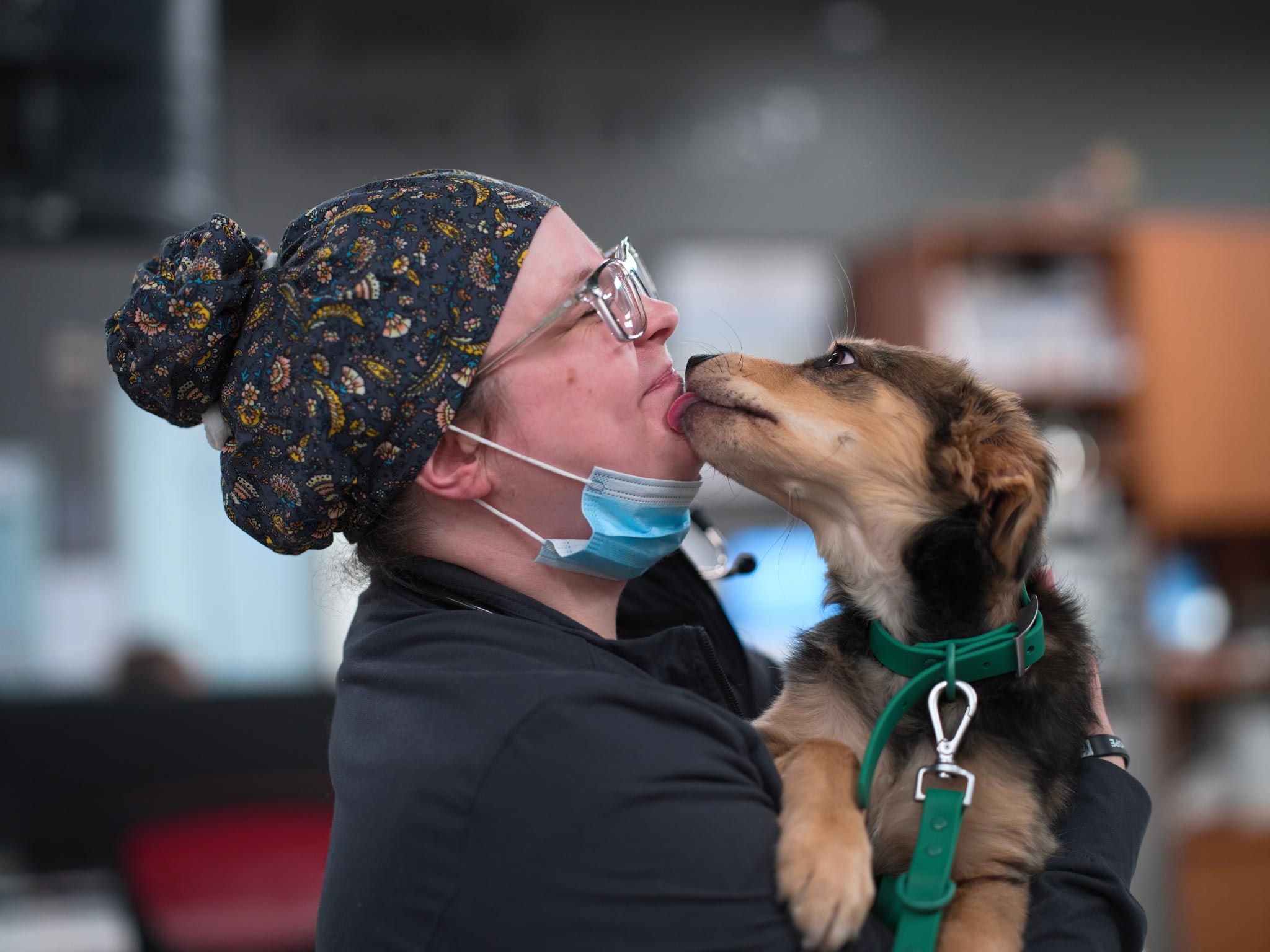
Here’s Why It Is Important to Keep Raisins Away from Your Dog
Dr. Katie Osekavage
Call & Speak with a doctor Open 24/7, Even Holidays!
Walk in today for:
Emergencies
Point-of-Care Ultrasound
Urgent Care
X-Rays
Diagnostics + Testing
End-of-Life Care
Surgery
Treatment + Hospitalization
Who doesn’t love a healthy, naturally sweet snack? Your dog does too! But there are quite a few foods canines shouldn’t eat, and raisins are a definite, “No, Fido.”
This snackable blog highlights the symptoms of raisin toxicity in dogs and what to do if your dog eats raisins. For pet owners experiencing an emergency with their pet, like “My dog ate raisins!” Veterinary Emergency Group (VEG) is always here to help.
Hair-raisin’ raisins
Raisins, along with grapes, are extremely toxic to dogs. The exact compound that causes this toxicity was unknown for a long period of time, but was very recently determined to be tartaric acid that is naturally found in grapes. The exact mechanism is still to be determined, however even small amounts of raisins can lead to rapid kidney failure and other serious health complications in dogs. Remember, raisins are dried grapes, and grapes are toxic too. And just like grapes, no matter if they’re black, green, or golden raisins, your dog needs to stay far away from them.
Consider it canine strychnine
Pet owners should know what raisin toxicity looks like in dogs, but also know that every dog reacts differently. Some experience severe reactions from even minimal exposure. This unpredictability makes raisins a high-risk food that you should never even think of testing for tolerance.
If your dog ate raisins, watch for symptoms, like:
- Abdominal pain
- Diarrhea
- Lethargy
- Loss of appetite
- Vomiting
- Signs of kidney failure like increased thirst and urination
If you notice any of these signs, it’s essential to seek veterinary advice immediately. Call your nearest VEG and let us know you’re on the way, or just come right in. Our staff will apply emergency treatments specific to your dog’s condition, so emergency veterinary attention is vital. Timely intervention can make a significant difference in your dog’s recovery.
Treatment for toxicity
Treatment for raisin toxicity primarily focuses on preventing the toxins from being absorbed into your dog’s body and supporting kidney function. Treatment for raisin ingestion may include:
- Inducing vomiting
- Providing intravenous fluids to support kidney function
- Monitoring kidney values closely
What to do if your dog ate something toxic like raisins
Knowing how to respond when your dog eats something harmful is crucial. We’re discussing raisins for the purposes of this blog, but these steps apply for any toxic ingestion.
What you should do, step by step:
- Identify and remove: Quickly remove any remaining toxic substance from your dog’s reach.
- Assess the situation: Note how much and what kind of substance your dog consumed.
- Do not induce vomiting yourself: Without professional guidance, inducing vomiting can be dangerous.
- Contact your veterinarian or emergency animal clinic: Call Veterinary Emergency Group or your local vet immediately for advice or come right in.
- Follow professional advice: The veterinary team at VEG will guide you on the next steps.
Keeping Your Dog Safe
As pet owners, our primary goal is to ensure the health and well-being of our furry companions. Understanding the dangers of certain foods, like raisins, and knowing how to respond in case of accidental ingestion can help keep our dogs safe. Even if your dog seems fine, the risks associated with raisin ingestion are too high to ignore. Veterinary Emergency Group is always available to provide advice and emergency care. At VEG, you’ll see a doctor right away and you never have to leave your dog’s side.

